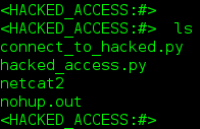This was a quick lab I threw together which I thought was pretty cool. In this lab I use five Cisco 3725 routers [IOS 12.4(15)T10] in which I have two groups of routers each on a different subnet and running a different routing protocol. A router is used to connect the two different subnets and EIGRP redistribution and OSPF redistribution allow nodes on the two different networks running different protocols to talk to each other. Below is the network diagram of the lab setup.
Below is the configuration I used. Take a look at R3’s configuration; this is where all the action is. Notice the “redistribute eigrp 1 subnets” command on R3’s configuration. By default OSPF will only redistribute classfull routes; this command is needed so subnets within the classfull range will be redistributed. Also, the “default metric 100 10 255 1 1500” command used when redistributing into EIGRP sets the bandwidth to 100 Kbps, delay to 10 tens-of-microseconds, reliability to 255 [range = 1 (low) – 255 (high)], and an MTU of 1500 bytes.
- R1 Configuration
– enable
– configure terminal
– interface fastEthernet 0/0
– ip address 10.1.3.1 255.255.255.252
– no shutdown
– exit
– interface fastEthernet 0/1
– ip address 10.1.1.2 255.255.255.252
– no shutdown
– exit
– interface loopback 0
– ip address 1.1.1.1 255.255.255.255
– exit
– interface loopback 1
– ip address 2.2.2.2 255.255.255.255
– exit
– router eigrp 1
– network 10.0.0.0
– network 1.1.1.1
– network 2.2.2.2
– exit
– exit
– write
- R2 Configuration
– enable
– configure terminal
– interface fastEthernet 0/0
– ip address 10.1.3.2 255.255.255.252
– no shutdown
– exit
– interface fastEthernet 0/1
– ip address 10.1.2.2 255.255.255.252
– no shutdown
– exit
– interface loopback 2
– ip address 3.3.3.3 255.255.255.255
– exit
– interface loopback 3
– ip address 4.4.4.4 255.255.255.255
– exit
– router eigrp 1
– network 10.0.0.0
– network 3.3.3.3
– network 4.4.4.4
– exit
– exit
– write
- R4 Configuration
– enable
– configure terminal
– interface fastEthernet 0/0
– ip address 10.2.1.2 255.255.255.252
– no shutdown
– exit
– interface fastEthernet 0/1
– ip address 10.2.3.1 255.255.255.252
– no shutdown
– exit
– interface loopback 0
– ip address 5.5.5.5 255.255.255.255
– exit
– interface loopback 1
– ip address 6.6.6.6 255.255.255.255
– exit
– router ospf 1
– network 10.2.0.0 0.0.255.255 area 0
– network 5.5.5.5 0.0.0.0 area 0
– network 6.6.6.6 0.0.0.0 area 0
– exit
– exit
– write
- R5 Configuration
– enable
– configure terminal
– interface fastEthernet 0/0
– ip address 10.2.2.2 255.255.255.252
– no shutdown
– exit
– interface fastEthernet 0/1
– ip address 10.2.3.2 255.255.255.252
– no shutdown
– exit
– interface loopback 0
– ip address 7.7.7.7 255.255.255.255
– exit
– interface loopback 1
– ip address 8.8.8.8 255.255.255.255
– exit
– router ospf 1
– network 10.2.0.0 0.0.255.255 area 0
– network 7.7.7.7 0.0.0.0 area 0
– network 8.8.8.8 0.0.0.0 area 0
– exit
– exit
– write
- R3 Configuration
– enable
– configure terminal
– interface fastEthernet 0/0
– ip address 10.1.1.1 255.255.255.252
– no shutdown
– exit
– interface fastEthernet 0/1
– ip address 10.
– exit
– interface fastEthernet 1/0
– ip address 10.2.1.1 255.255.255.252
– no shutdown
– exit
– interface fastEthernet 2/0
– ip address 10.2.2.1 255.255.255.252
– no shutdown
– exit
– router eigrp 1
– network 10.0.0.0
– exit
– router ospf 1
– network 10.2.0.0 0.0.255.255 area 0
– exit
– router eigrp 1
– default metric 100 10 255 1 1500
– redistribute ospf 1
– exit
– router ospf 1
– redistribute eigrp 1 subnets
– exit
– exit
– write
Now that everything is configured, I check the routing tables from routers on both networks to confirm that the redistribution worked and all routes are learned; below, I confirm this using routers R1 and R4. In addition, I ping from the EIGRP network to the OSPF network and vice versa to demonstrate that communication is good.






 Twitter
Twitter LinkedIn
LinkedIn Youtube
Youtube RSS
RSS